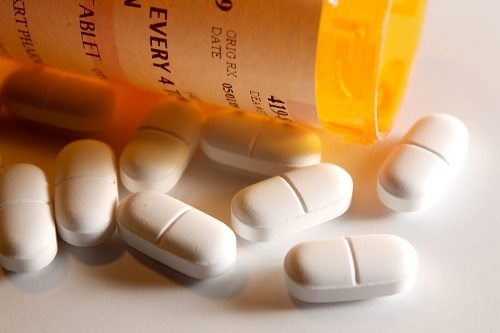Hydrocodone, also named Vicodin, can be extremely habit-forming. Even when used as a pain reliever, addiction can form before a person is aware it has happened. The brain’s neurotransmitters can be altered by Vicodin use. Vicodin can trigger euphoria in the brain which causes people to seek the high time and again. Learn more about the signs of dependence and addiction to Vicodin and how to seek help.
Symptoms
Physical, emotional and behavioral signs of addiction may be present but psychological need for the drug manifests once a person quits taking Vicodin. A family doctor can screen for signs of addiction. Symptoms to be aware of may include:
- Aggressive attitude or behavior when asked about Vicodin use
- Using Vicodin in spite of negative consequences
- Cravings for the drug
- Decreased performance in school or at work
- Poor hygiene
- Hiding use from others
- Unable to stop taking Vicodin
- Obsessively seeking ways to get more Vicodin
- Using Vicodin to cope with daily life
Vicodin Tolerance
Taking Vicodin on a daily basis can lead to increased usage. Prolonged use of Vicodin can cause individuals to need more hydrocodone in the system to achieve the same effect. This signals increased dependence on and tolerance for Vicodin.
Vicodin Dependence
Withdrawal symptoms may begin once a person addicted to Vicodin stops using the drug. The body develops physical dependence on the drug with symptoms ranging from diarrhea, flu-like symptoms, insomnia and nausea or vomiting. Extreme muscle or bone pain, high levels of anxiety and restlessness may occur during withdrawal.
Treatment
Treatment for Vicodin addiction may combine pharmaceutical and behavioral interventions. The first step is to recognize a problem exists then make strides to address the problem through treatment. A person must want help for treatment to be effective. Nobody can be forced to experience the benefits of treatment who is not ready. Two treatment programs are available for Vicodin addiction:
Inpatient Treatment
The program may be part of a hospital or special clinic. A person will sleep at the facility and receive therapy in the day or evening. Treatment usually lasts 3 to 6 weeks depending on the individual’s circumstances. Following inpatient treatment, counseling and group therapy is recommended. An individual may be a good candidate for this type of treatment if outpatient treatment did not work, other physical or mental health problems exist or a facility is not located nearby.
Outpatient Treatment
Treatment on an outpatient basis occurs in mental health clinics, counselor’s offices, hospital clinics or local health department offices. A person does not stay overnight. Outpatient treatment focuses on the whole person, not just the symptoms of addiction. An individual may be a good candidate for this type of treatment if inpatient treatment is cost prohibitive, the person cannot quit work to attend rehab or wants to be closed to family and friends during treatment.
Vicodin can be habit-forming with life altering consequences. There is life after addiction. The Villa Treatment Center is here to help you move past addiction to recovery. Call us to find out how we can support you on the journey.

